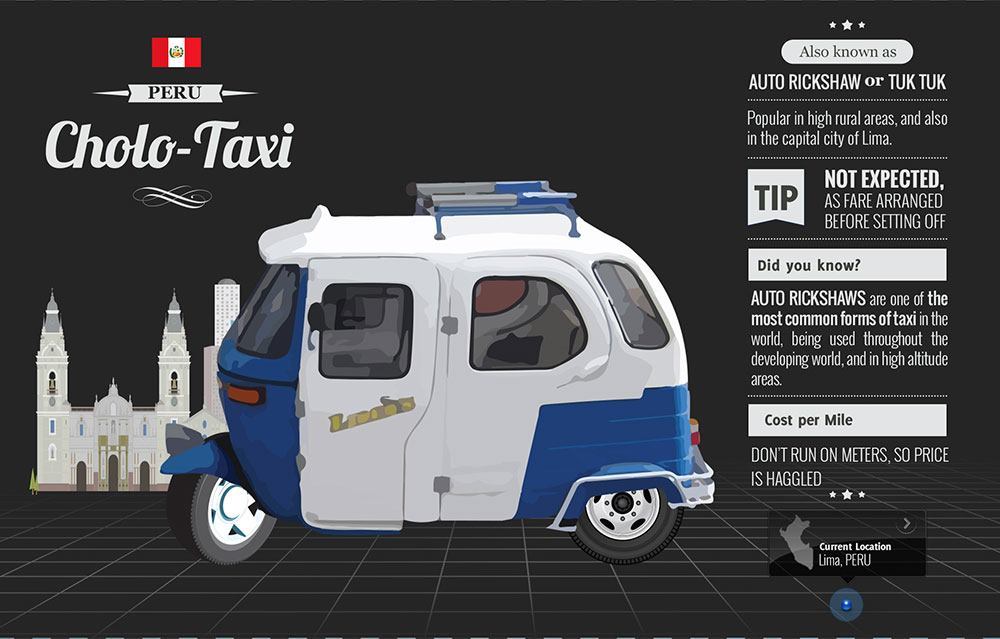Cab, tup tup, jeepney or jitney; whatever you call them, when you’re lost, tired or just need to get somewhere fast, the taxi is a sight for sore eyes. Ever since motorised travel first came into use in the 19th century, people with nous and knowledge of the road have charged willing passengers for their services....
The Taxi Centre takes us around the world through this infographic... check the below.... and more...


It’s not only the types of taxis that differ around the world, but also the cultures of practice surrounding them. For most readers, a taxi is probably something hired from a rank or company, with a price paid based on a standard meter, but this is far from the norm. Take for example Russia, which has a huge unlicensed taxi trade, with many people working as drivers for short periods after their full time jobs. In Moscow, it’s even common for civilian drivers to offer lifts on an individual basis when flagged down, agreeing a price before setting off.

Many countries also have taxis that are far more collective than those in the western world will be used to. Whilst taxi sharing in the U.K or U.S.A is something done infrequently to split a cost, in countries like Haiti and Nigeria “share taxis” exist in their own public transport category. At first glance, a share taxi may resemble a bus, with a large group of passengers paying a driver before setting off. However, share taxis are free to stop and pick up where they please, dropping off passengers to whatever destination they want.







































